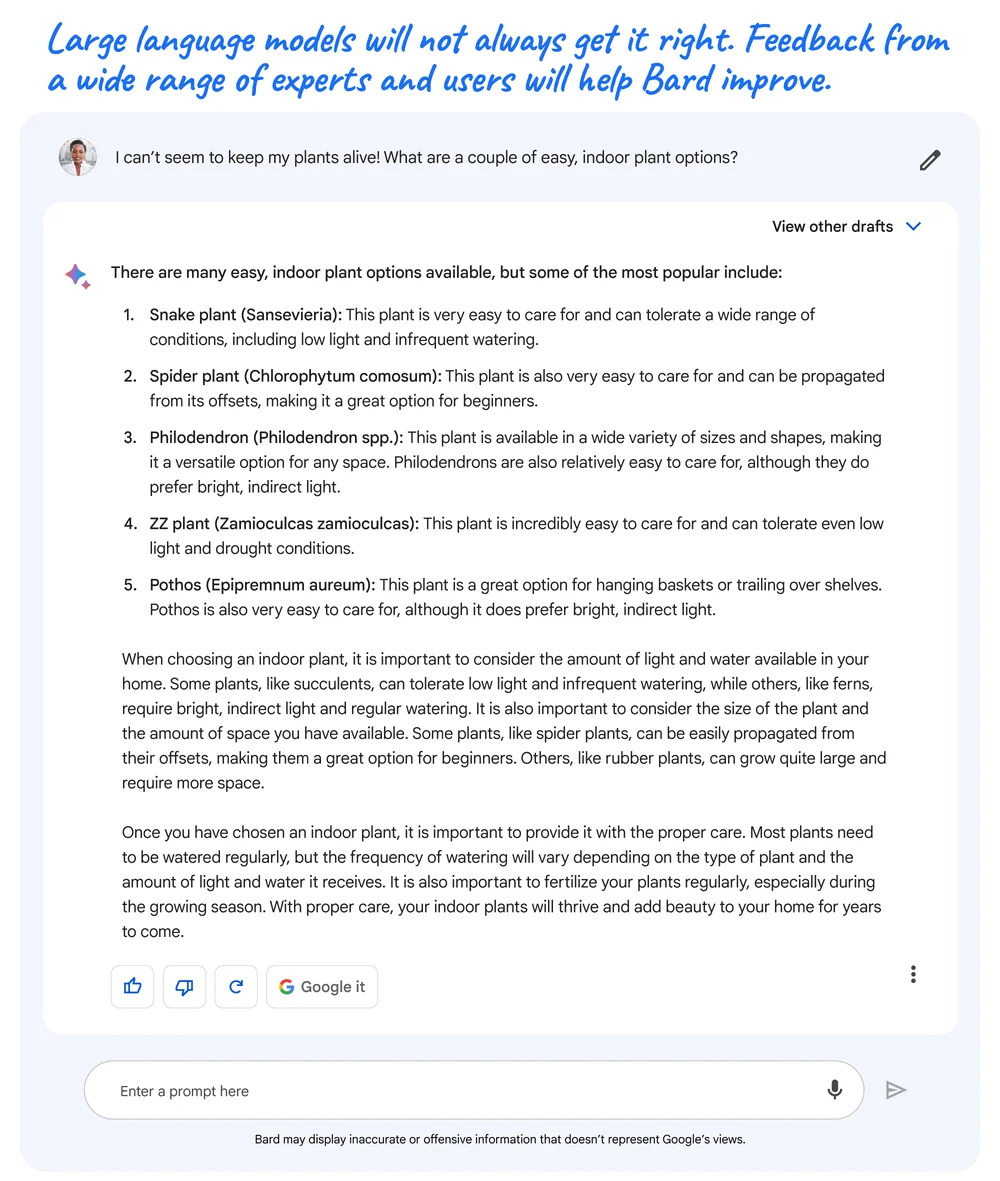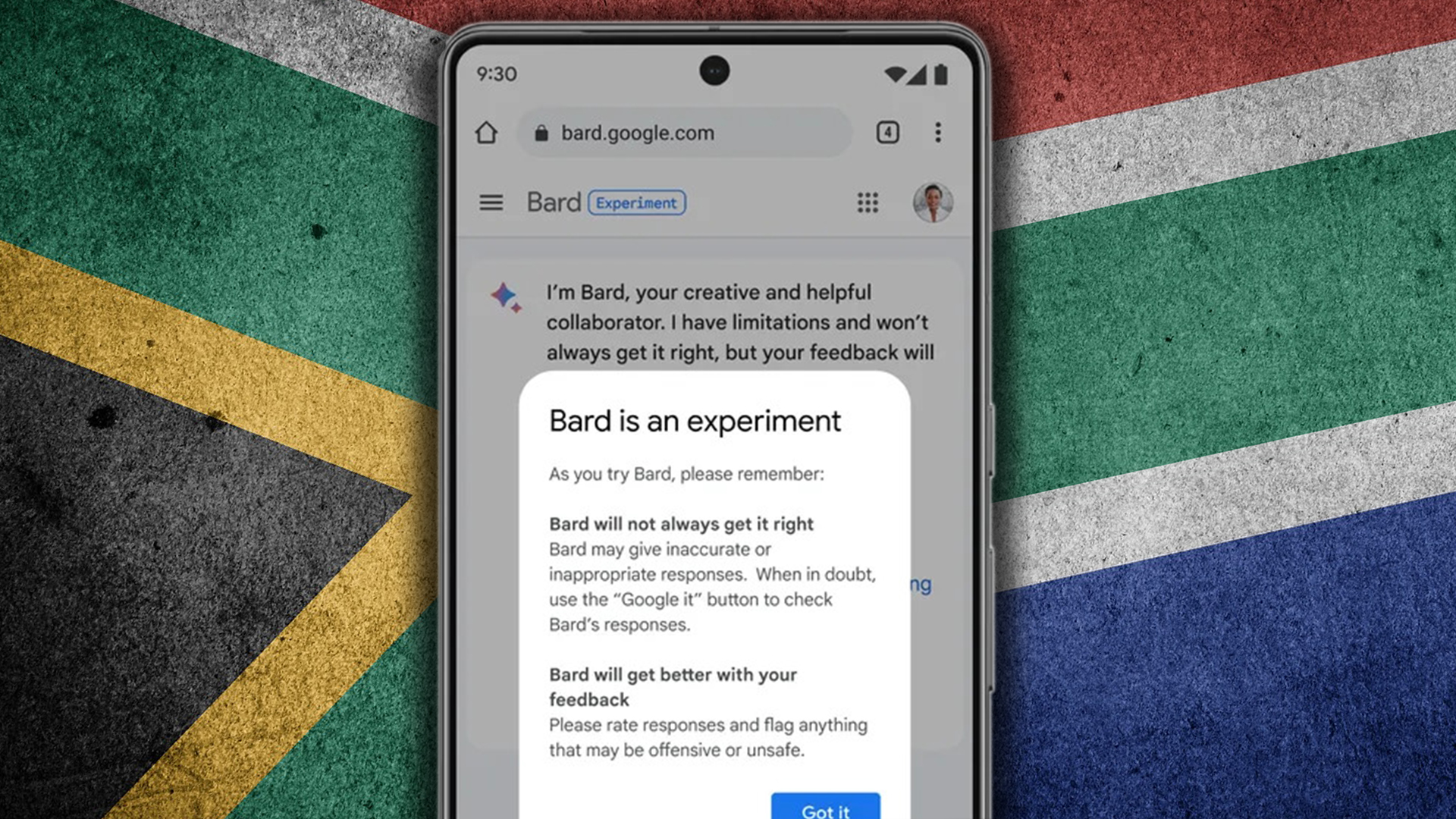- Google has launched open access for its Bard chat platform, which uses an AI language model to empower its search engine.
- Bard has only launched in the US and UK so far, with Google explaining that it is still very experimental at the current stage.
- In contrast, Microsoft’s own AI-powered search engine launched worldwide last week, and it is available right now to South African users.
On Tuesday Google launched open access to its ChatGPT rival, Bard. Calling it “an early experiment,” the product is only available in the US and the UK right now with the search giant indicating that it will expand to more countries and languages “over time.”
Google has been hot on the heels of Microsoft’s own large language model-empowered search engine.
Last week saw the worldwide launch of the “new” Bing, which has ChatGPT-like responses. In contrast to Google, Bing is available in South Africa right now and we even tried it with some very local questions.
From what can be seen in Google’s blog post about the launch of Bard open access, the software provides a similar platform to Bing, but without marking references. Bing shows users citations when an answer is given, allowing you to look further into the sources it drew from to find your answer.
Compare responses from the two platforms below:


It also doesn’t look like users are able to select what answering mode they would like to use with Bard.
With Bing, users can select from three modes that significantly change the type of answer they receive from the same prompt. However, we found that the “Creative” mode generates the most in-depth responses, over the “Balanced” and “Precise” modes.
Unlike Bing, Bard is powered by a version of Google’s proprietary software LaMDA, or “language model for dialogue applications.” The company says that users should think of LaMDA as a prediction engine.
“When given a prompt, it generates a response by selecting, one word at a time, from words that are likely to come next. Picking the most probable choice every time wouldn’t lead to very creative responses, so there’s some flexibility factored in,” Google writes.
Another difference between the launch of the two AI-powered search engines is that Google is far more open about incorrect answers and general misinformation from their model. It has often made reference to ethical and responsible uses of its AI chat software.
“While LLMs are an exciting technology, they’re not without their faults. For instance, because they learn from a wide range of information that reflects real-world biases and stereotypes, those sometimes show up in their outputs,” it writes.
The company says that these models can confidently present inaccurate, misleading or false information, which screws up with our truth bias. It gives the example of the above answer about indoor plants. Bard got the scientific name of the ZZ plant wrong. A layperson may never have been able to pick this up.
This is not a problem that is only experienced at Google, however. A report from Axios details how a new study found that GPT-4, the foundation of ChatGPT, which is in turn the foundation of Bing’s chat functions, gives false information all the time.
While GPT-4 creators OpenAI have said that improvements are being made constantly, especially in the realm of providing more factual answers, concerns about the spreading of information will only grow as the platforms become even more popular.
With this we can definitely see the benefits of Bing’s article citations, so users can see where exactly the information is coming from.
“Although it’s important to be aware of challenges like these,” Google writes. “There are still incredible benefits to LLMs, like jumpstarting human productivity, creativity and curiosity. And so, when using Bard, you’ll often get the choice of a few different drafts of its response so you can pick the best starting point for you.”
“You can continue to collaborate with Bard from there, asking follow-up questions. And if you want to see an alternative, you can always have Bard try again.”
As of right now, it is a toss-up between the two platforms for which is better, and we won’t be able to weigh in on this until we have full access to Bard. We can say that we are pleasantly surprised every time we use the new Bing, and it has been the most we have cared about the search engine ever.
At least Microsoft can consider that a victory.
[Image – Google]

